Outsourcing marketing refers to the practice of hiring external professionals or agencies to handle various marketing activities and tasks on behalf of a business. These activities can include strategic planning, advertising, social media management, content creation, search engine optimization (SEO), and more. By outsourcing marketing, businesses delegate these responsibilities to specialized experts outside their organization.
The growing trend of businesses opting for outsourcing
In recent years, there has been a significant increase in the number of businesses choosing to outsource their marketing functions. This trend can be attributed to several factors, such as the growing complexity of marketing strategies, the need to stay competitive in a rapidly changing digital landscape, and the availability of skilled marketing professionals and agencies. Outsourcing marketing has become a viable solution for businesses of all sizes, from startups to large enterprises.
Understanding the Benefits of Outsourcing Marketing
Access to specialized expertise
- Leveraging the skills of marketing professionals
Outsourcing marketing allows businesses to tap into the expertise and experience of professionals who specialize in various marketing disciplines. These experts possess knowledge of the latest industry trends, best practices, and emerging technologies, enabling businesses to leverage their skills for more effective marketing strategies.
- Staying up-to-date with the latest trends and strategies
Marketing is a dynamic field that continually evolves. By outsourcing marketing, businesses can ensure that their strategies are aligned with the latest trends and industry changes. Marketing professionals stay updated with new tools, platforms, and techniques, allowing businesses to stay competitive and adapt to shifting market demands.
Cost-effectiveness
- Avoiding recruitment and training expenses
Hiring an in-house marketing team requires significant recruitment efforts, training programs, and ongoing management. Outsourcing marketing eliminates these costs associated with recruiting, onboarding, and training employees. Instead, businesses can allocate their budget toward outsourcing fees, which can often be more cost-effective in the long run.
- Paying for specific services as needed
Outsourcing marketing provides businesses with the flexibility to pay for specific services as needed. Rather than maintaining a full-time marketing team with fixed salaries, businesses can engage with external providers for specific projects or ongoing support. This allows for more efficient allocation of resources and cost control, especially for businesses with fluctuating marketing needs.
Increased focus on core business activities
- Allowing business owners to concentrate on core competencies
By outsourcing marketing, business owners and internal teams can focus on their core competencies and strategic priorities. Marketing activities can be time-consuming and demanding, requiring constant attention and expertise. Outsourcing these tasks allows business owners to redirect their energy and resources toward driving growth, enhancing product or service offerings, and improving overall business operations.
- Allocating resources more efficiently
Outsourcing marketing tasks frees up internal resources, such as time, personnel, and infrastructure. This enables businesses to allocate these resources more efficiently, directing them toward critical areas of the business that require specialized attention or additional investment. The ability to optimize resource allocation can lead to improved overall business performance and outcomes.
Evaluating Potential Drawbacks
Loss of control
- Concerns about aligning with brand identity
When outsourcing marketing, there can be concerns about whether the external team will fully understand and align with the brand identity, voice, and values of the business. It is crucial to ensure that the outsourced marketing professionals have a clear understanding of the brand and its target audience to maintain consistency and authenticity in messaging and brand representation.
- Communication challenges with an external team
Effective communication is vital for successful marketing campaigns. With an outsourced team, there may be challenges in maintaining clear and timely communication. Factors such as language barriers, different time zones, and remote working arrangements can impact communication efficiency. Establishing effective communication channels and protocols, along with regular check-ins and feedback sessions, can help mitigate these challenges.
Lack of immediate responsiveness
- Time zone differences and delayed communication
Working with an outsourced team located in different time zones can lead to delays in communication and response times. Urgent requests or immediate changes may require coordination across different time zones, potentially affecting campaign execution timelines. Setting clear expectations regarding response times and establishing efficient communication channels can help minimize these challenges.
- Balancing turnaround times with outsourced providers
Outsourced marketing providers often work with multiple clients simultaneously. Depending on their workload and capacity, there may be limitations to their availability and turnaround times. Businesses should discuss and establish realistic timelines and deadlines with the outsourced team to ensure that deliverables align with their requirements and marketing schedules.
Finding the right outsourcing partner
- Thorough research and due diligence
Selecting the right outsourcing partner is critical to the success of outsourced marketing efforts. Thoroughly researching potential providers, assessing their expertise, experience, and reputation, and seeking testimonials or referrals can help ensure a reliable and competent partner. Checking their portfolio, case studies, and client reviews can provide insights into their capabilities and track record.
- Importance of clear expectations and effective communication
Before entering into an outsourcing partnership, it is essential to establish clear expectations and goals. Effective communication about project scope, timelines, deliverables, and key performance indicators (KPIs) is crucial to align both parties\’ understanding. Setting up regular progress updates and performance evaluations can help maintain accountability and ensure that the outsourced marketing efforts are meeting expectations.
Determining the Cost-Effectiveness
Cost Comparison: In-house marketing vs. outsourcing
- Salary, benefits, and overhead expenses
In-house marketing teams come with fixed costs, including salaries, benefits, and overhead expenses such as office space, equipment, and software. Outsourcing can often provide cost savings as businesses only pay for the specific services or projects they require, without the overhead expenses associated with maintaining an internal team.
- Outsourcing costs and potential savings
Outsourcing marketing services come with their own costs, typically in the form of service fees or project-based pricing. However, outsourcing can still be cost-effective when compared to the expenses associated with hiring, training, and managing an in-house team. Calculating the total cost of ownership, considering both direct and indirect costs, can help businesses determine the potential savings from outsourcing.
Calculating return on investment (ROI)
- Considering long-term gains and growth opportunities
When evaluating the cost-effectiveness of outsourcing marketing, it is essential to consider the long-term gains and growth opportunities. Effective marketing strategies can generate increased brand awareness, customer acquisition, and revenue growth. Assessing the potential ROI in terms of these outcomes can provide a broader perspective on the value of outsourcing marketing.
- Measuring performance and results
Measuring the performance and results of outsourced marketing efforts is crucial for determining cost-effectiveness. Establishing clear metrics and KPIs aligned with business goals and regularly tracking and analyzing the performance of campaigns can help assess the effectiveness and ROI of outsourcing. This data-driven approach enables businesses to make informed decisions about continuing or adjusting their outsourcing strategies.
By evaluating the potential drawbacks and conducting a comprehensive cost analysis, businesses can gain a better understanding of whether outsourcing marketing is worth the investment. In the next section, we will explore the factors businesses should consider before deciding to outsource their marketing efforts.
Factors to Consider Before Outsourcing Marketing
Nature and size of the business
The nature and size of the business play a crucial role in determining whether outsourcing marketing is a suitable option. Consider factors such as the industry, target market, and business goals. Complex industries or niche markets may require specialized knowledge and expertise that are more readily available through outsourcing. Additionally, the size of the business and its marketing needs should be evaluated to assess the feasibility and scalability of outsourcing.
Marketing goals and objectives
Clearly defining marketing goals and objectives is essential before considering outsourcing. Determine whether the goals align with the capabilities and expertise of an outsourced team. For example, if the primary objective is to improve online presence and drive website traffic, outsourcing digital marketing services may be a viable option.
Internal capabilities and resources
Assess the internal capabilities and resources of the business to identify any gaps that outsourcing can address. Evaluate the existing marketing team\’s skills, bandwidth, and expertise. If there are limitations or skill gaps that hinder effective marketing execution, outsourcing can help fill those gaps and enhance overall marketing capabilities.
Industry-specific considerations
Consider industry-specific factors that may impact the decision to outsource marketing. Certain industries may have specific compliance requirements, regulatory considerations, or unique marketing strategies. Understanding these industry-specific nuances can help determine whether outsourcing marketing is a suitable choice.
Case Studies and Success Stories
BASS
Making an Informed Decision
Weighing the Pros and Cons
When considering outsourcing marketing, it is essential to weigh the pros and cons against the specific needs and circumstances of the business. The pros discussed earlier, such as access to specialized expertise, cost-effectiveness, and increased focus on core activities, can offer significant advantages. However, the potential drawbacks, such as loss of control, communication challenges, and finding the right outsourcing partner, should also be carefully considered. Each business is unique, and conducting a comprehensive evaluation based on specific requirements is crucial to making an informed decision.
Analyzing Financial Implications and Potential Returns
It is vital for businesses to perform a thorough financial analysis when contemplating outsourcing marketing. This analysis should consider both the immediate costs and long-term returns associated with outsourcing. By assessing the cost-effectiveness of outsourcing compared to maintaining an in-house team, businesses can determine the potential savings. Furthermore, it is crucial to consider the return on investment (ROI) and the potential growth opportunities that effective marketing strategies can bring. A well-executed marketing campaign can lead to increased brand visibility, customer acquisition, and revenue growth.
Considering Short-Term and Long-Term Marketing Strategies
The decision to outsource marketing should align with both short-term and long-term marketing strategies. Short-term needs may include specific campaigns or projects that require specialized expertise or additional resources. Outsourcing can provide the necessary skills and flexibility to execute these initiatives effectively. Additionally, businesses must consider their long-term marketing objectives, which involve sustainable growth and brand development. By aligning outsourcing decisions with overall marketing objectives, businesses can ensure that their strategies remain consistent and focused on long-term success.
Conclusion
In conclusion, outsourcing marketing is a decision that requires careful consideration and research. Throughout this article, we have explored the benefits, drawbacks, factors to consider, and the importance of evaluating unique business needs. Businesses must assess their goals, resources, and industry-specific requirements before deciding whether outsourcing marketing is worth the cost. Remember, there is no one-size-fits-all answer. Each business is different, and a comprehensive evaluation based on individual circumstances is necessary. By making an informed decision, businesses can determine whether outsourcing their marketing efforts is the right choice for achieving their marketing objectives.







